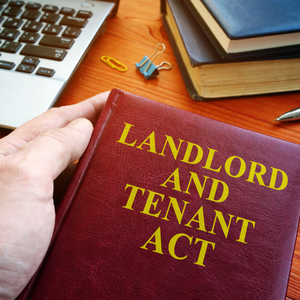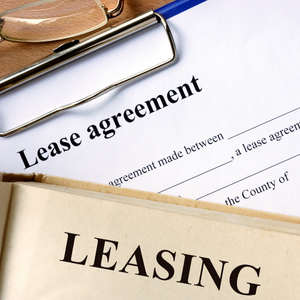
Selling or leasing a rental property in Texas requires a solid grasp of state regulations and tenant rights. From lease obligations to disclosure requirements, understanding these rules ensures a smooth process. Equip yourself with the right knowledge to stay compliant and move forward confidently with your sale. Remember, Lone Star Home Offers can help simplify the journey.
Key Highlights
- Navigating Texas property sales requires understanding state-specific regulations, tenant rights, and lease obligations for a smooth transaction.
- Capital gains tax in Texas follows federal guidelines, impacting net income from property sales and requiring strategic financial planning.
- Evaluating market trends, such as buyer demand and interest rates, is key to determining the optimal timing for a Texas property sale.
- Selling tenant-occupied properties demands adherence to legal considerations and transparent communication to respect tenant rights.
- Lease terms significantly influence property sales dynamics, affecting buyer interest and financial strategies for maximizing returns.
The Basics of Selling a Rental Property

Selling a rental property in Texas requires careful attention to both legal and financial responsibilities. Landlords must notify tenants of the impending sale, respect existing lease agreements, and comply with Texas tenant rights and property disclosure laws, which require revealing any known defects. These steps not only protect sellers from legal issues but also build trust with potential buyers, helping ensure a smoother transaction.
If you’re considering selling your rental house quickly and without the complications of tenant management, working with professional cash buyers can simplify the process. Instead of navigating showings, repairs, and tenant disputes, you can sell directly and move on to your next investment. For a stress-free transaction and fair cash offer, contact Lone Star Home Offers today to explore your options.
Understanding Property Sale Requirements in Texas
When selling a rental property in Texas, landlords must follow specific legal and procedural requirements to ensure a smooth transaction. One key step is notifying tenants about the sale, especially in tenant-occupied properties, and respecting their rights during property showings. Clear communication helps maintain cooperation and avoid conflicts during the selling process.
Texas law also requires sellers to provide property disclosures about known defects or issues that could affect value. These disclosures are essential for transparency and can influence buyer decisions and the final sale price. Failing to disclose material defects may result in legal consequences, making compliance critical for landlords.
Another important factor is how existing leases impact the sale. Buyers may need to honor current lease agreements, which can either appeal to investors seeking rental income or deter buyers who want immediate occupancy. By understanding these obligations, landlords can position their property more effectively and create a smoother, legally compliant sale.
Impact of Market Conditions on Selling a Texas House
Understanding Texas housing market conditions is essential when selling a house, as these factors directly impact property value and sales strategies. Buyer demand, interest rates, and broader economic trends influence the timing of a sale and determine whether the market favors sellers or buyers. By analyzing these trends, homeowners can price their properties effectively and improve their chances of a successful transaction. Working with cash home buyers in Sugar Land, TX, and in nearby cities in Texas can also help sellers navigate shifting market conditions and secure quicker offers.
Sellers must also account for financial considerations, including potential capital gains implications, which affect overall profits. Evaluating both market conditions and tax responsibilities allows property owners to make informed choices, maximize returns, and stay compliant with Texas real estate requirements.
Evaluating Market Trends for Optimal Property Sale
Evaluating Texas real estate market trends is essential for determining the best time to sell a house. Economic factors such as job growth, population increases, and interest rates all shape housing demand. A strong economy often creates a seller’s market with rising home prices, while downturns can shift conditions in favor of buyers, requiring more competitive pricing strategies.
For landlords considering the sale of a rental property in Texas, rental data like yields, tenant demand, and vacancy rates are equally important. Investors want to see stable occupancy and strong rental returns before purchasing. By tracking regional trends and highlighting features such as consistent cash flow, sellers can make their properties more appealing to investor buyers.
Seasonal patterns also play a role, with spring and early summer typically attracting more buyers. Pairing favorable market timing with staging and targeted marketing can further increase interest. By aligning a sale with both housing and rental market trends, Texas property owners can maximize returns, attract serious buyers, and ensure a smoother selling process.
Capital Gains Implications During a Sale
Capital gains are a key factor when selling a rental property in Texas, as profits from the sale may be taxed. The IRS classifies these gains as either short-term or long-term, depending on how long the property was owned, with long-term gains usually taxed at lower rates. This classification directly impacts the seller’s net proceeds and makes planning ahead essential.
Sellers can lower taxable gains by accurately calculating net profit and tracking expenses that add value, such as renovations or closing costs. For example, if a property was purchased for $200,000, sold for $300,000, and the seller spent $20,000 on improvements, the taxable gain would be $80,000 ($300,000 – $200,000 – $20,000). Primary residence exclusions, when applicable, can reduce this amount further. Working with a tax professional ensures proper reporting and may uncover additional savings.
Another option is a 1031 exchange, which allows sellers to defer capital gains taxes by reinvesting in another investment property. This strategy supports long-term portfolio growth while keeping more capital working for future deals. By understanding and planning for capital gains implications, Texas landlords can maximize returns and make financially sound real estate decisions.
Is It Legal to Sell a Tenant-Occupied Property?

Yes, it is legal to sell a tenant-occupied property in Texas, but landlords must follow state laws and respect tenant rights throughout the process. Existing lease agreements remain binding, meaning tenants typically have the right to stay until the lease ends unless both parties agree otherwise. Landlords should also provide proper notice of the sale to maintain transparency and avoid disputes, even though Texas law does not set a strict notice period.
Successful transactions require balancing landlord obligations with tenant protections. This includes structuring lease and sale agreements carefully, disclosing relevant information, and coordinating showings in a way that respects tenant privacy. By managing these responsibilities correctly, landlords can ensure a smooth property sale while upholding compliance with Texas law.
Legal Considerations for Lease and Sale Agreements
With respect to occupied properties in Texas, a seller also needs to appreciate lease agreements and their implications. Absent any negotiation to the contrary, a tenant has the right to remain until the lease period comes to an end. There is a ‘no notice period’ requirement under Texas state law, but the seller should notify the tenant of the sale. This is not a requirement for litigants, but it is prudent to share information to minimize the chances of disputes arising in the future.
Lease terms can also add or detract value to the property. Long leases may actually enhance value for income-producing investors but may detract value for occupants or buyers wanting to renovate the property immediately. A seller must balance the consideration of tenant rights and privacy in the context of showing the property to prospective buyers in order to remain on the good side of tenant-landlord relationships.
Some of the property disclosures are also legal requirements, and in Texas, it is crucial for a seller to state the material defects of the property, what active leases exist, and any disputes that have arisen in the past. The consequences of non-disclosure can lead to legal ramifications, including a breach of contract categorization. The seller will be left protected under the Texas law but also will be able to gain buyers’ trust, resulting in an effortless negotiation.
Should You Wait Until the Lease Ends?
Deciding when to sell a rental property in Texas depends on lease terms, tenant situations, and current market conditions. Listing a tenant-occupied property with an active lease can attract real estate investors who want immediate rental income and a turnkey investment. In contrast, waiting until the lease ends allows landlords to renovate, stage, and market the home to a broader pool of buyers, including those seeking primary residences. Working with investor home buyers in Texas and nearby cities can also provide flexible solutions for selling at the right time.
Both approaches have advantages and challenges. Selling with tenants provides steady cash flow but can limit showings and reduce buyer flexibility. Waiting for the lease to expire can boost buyer interest and potentially raise the property’s value, though it may also create holding costs and gaps in rental income. By carefully weighing these factors, landlords can determine the best strategy for a profitable and smooth Texas rental property sale.
Pros and Cons of Leasing vs. Selling Immediately
Many landlords are left wondering if they can keep their renters after selling their rental property or if they would have to wait until after the property lease ends. A property deal depends on the tenant agreements and the market conditions of that particular property. All these factors might affect the worth of a property, the interest of potential buyers, and even the investment value.
One of the buyers of a rental property might be a landlord who appreciates passive income. In these situations, property value won’t be maximized. In these types of situations, the buyers are able to take advantage of the property. There are sometimes underlying problems. Prices might be lower due to a failing market; access to property is limited, and the privacy of the tenants is at stake if the renters do not conduct a proper showing of the property.
However, if the property is not sold immediately, the landlord is able to make a profit. In these situations, the landlord is able to adjust the rental price and have more control of the property. In these situations, the landlord is able to cover the holding property. Certainly, there are profits and holding costs associated with selling the property. All of these problems can be solved systematically through consultation with real estate experts who can help these landlords maximize.
How the Type of Lease Impacts the Sale

The kind of lease on a Texas rental property can affect its sale directly. Fixed-term leases are attractive to investors looking to generate steady income but, but they can be a dealbreaker to buyers looking to move in right away. Month-to-month leases are flexible but increase concerns about tenant turnover, which can have an effect on demand and property sale value.
It is crucial to understand how lease terms influence demand, financing, and the value of the property for landlords. In Texas, leases, which are cumbersome, become complex, especially when listing the property. It can become more appealing to investors if the listed leases are renegotiated in order to help ensure smoother and more reliable offers.
Lease Terms and Their Influence on Property Sale
When selling a rental property in Texas, lease Terms have a big impact. An investor looking to buy a rental property that will generate income might find fixed-term leases attractive. On the other hand, a buyer looking to occupy the property might find these daunting. Month-to-month leases benefit new owners, but they are a cause of concern for some investors due to the risk of tenant turnover.
From the perspective of the property owners, it is crucial to the need to these factors. A property with long standing tenants may be appealing as a stable investment, but in reality, juggling with the coordination of showings and the required privacy that the tenant is owed can be difficult. Tenants on long leases can control access to the property and have a big impact on the desirability of the property.
Strengthening the property’s appeal with attractive lease terms may be a key selling strategy. Removing fears of buyer’s remorse may be as easy as providing incentives for early lease termination or changing to month-to-month status. Landlords are able to anticipate and prepare fiscal plans for future situations, which can enhance their chances for higher property sale value and smoother sale outcomes.
In conclusion, thoughtful tax planning to maximize capital gains is going to take some anticipation and an understanding of evolving tax law. Some strategies can quickly provide benefits, bolster financial stability, and allow Texas property owners to grow their real estate portfolio with assurance.
FAQs
In Texas, what legal issues need to be resolved when selling a property with a tenant in place?
In Texas, selling a property with a tenant in place requires notifying the tenant of the property’s pending sale, honoring the current lease, and letting the tenant know when the property is going to be shown. Landlords must balance the legal obligations to inform the tenant and the risks of lease negotiation during the selling process.
How do capital gains taxes affect the sale of real estate in Texas?
Any property that is disposed of for a value higher than its purchase price is subject to capital gains taxes. Over here in Texas, the property is taxed based on federal law. There is a distinction made between the property’s value appreciation over time as long-term gains, which are taxed at a lower level, and short-term gains, which are taxed on the same basis as ordinary income. Certain tax strategies, such as the 1031 exchange, can be utilized to postpone the payment of such taxes.
What should landlords keep in mind when they choose to sell a property with an ongoing lease?
Landlords should determine whether selling a property with an ongoing lease will be more attractive to investors looking to gain rental income straight away or whether it is more worthwhile to wait until the lease has expired for greater flexibility. The level of tenant productivity during showings and the terms of the lease vary, and these are significant considerations when it comes to the property’s marketability.
What other aspects should an individual selling a property in Texas focus on apart from market demand and trends?
Market demand and trends, such as demand from buyers and the state of interest rates, are very important factors to consider because they will determine when is the most advantageous time to sell a property. These trends also determine other strategies that a seller will have to employ in a bid to increase the value of the property while in alignment with Texas real estate regulations.
What are the consequences of lacking management concerning property disclosure while selling a house in the state of Texas?
Not managing the property to readily disclose issues that a buyer should know because they would significantly affect the value of the property, and failing to disclose such issues to a buyer often results in the seller suffering most legally after the transaction, which then damages the selling price of the house. This could in the end lead to injuries that are contrary to the terms in the contract.
Here are key strategies landlords should consider implementing to effectively plan and manage their capital gains taxes:
- Keep thorough records of all property-related expenditures for accurate deductions.
- Evaluate the market to choose the optimal timing for selling your property.
- Consider engaging a tax advisor for personalized tax-saving strategies.
- Explore the 1031 exchange for deferring capital gains taxes.
- Monitor changes in tax legislation that may affect property transactions.
- Plan sales to avoid elevating your income into higher tax brackets.
- Identify potential benefits of tax exclusions and deductions applicable to your situation.
These strategies serve as a roadmap for landlords to maximize gains while minimizing tax liabilities.
Looking to sell your rental property? Whether you need to sell quickly, avoid tenant complications, or want a smooth, hassle-free transaction, Lone Star Home Offers can help. We provide fair cash offers, manage the details, and simplify the entire process. Have questions or ready to get started? Call us at (713) 234-6562 today for a no-obligation cash offer.
Helpful Texas Blog Articles
- Tips for Fixing Up a House to Sell in Texas
- Sale of a Rental Property in Texas
- Texas Closing Costs Without Realtor
- Understanding Capital Gains Tax After Selling a House in Texas
- Selling House by Owner Paperwork in Texas
- Selling An Estate Home in Texas
- How To Sell A Hoarder House in Texas
- Who Pay The HOA Fees at Closing in Texas?
- How Long After an Appraisal Can You Close in Texas
- Can the Seller Back Out of a Contract in Texas?
